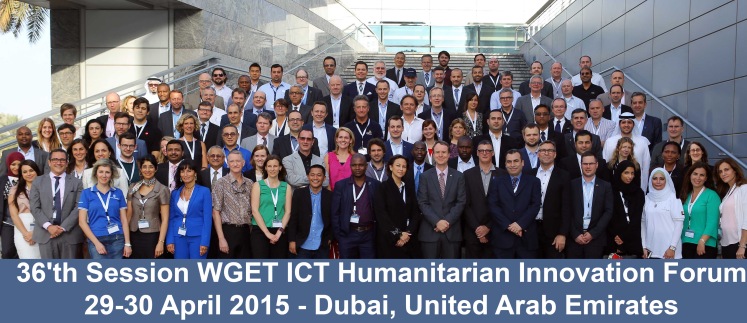Latest Event Updates
1. Official Opening of the 36th WGET Forum
Presenter: His Excellency Abdulla Abdul Rahman Al Shaibani, Secretary General of the Executive Council of Dubai and Board Member, International Humanitarian City
Wednesday, 29 April 2015, 09:00-09:10
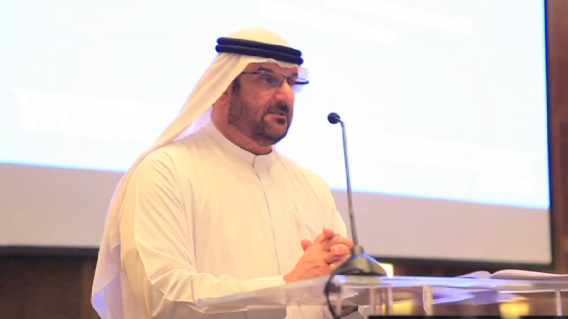 His Excellency Abdulla Abdul Rahman Al Shaibani officially opened the 36th WGET – ICT Humanitarian Innovation Forum and welcomed participants to Dubai.
His Excellency Abdulla Abdul Rahman Al Shaibani officially opened the 36th WGET – ICT Humanitarian Innovation Forum and welcomed participants to Dubai.
Underscoring the commitment of the United Arab Emirates to humanitarian action, including through official development assistance and the work of the International Humanitarian City (IHC), H.E. Mr. Al Shaibani shared the UAE Vision 2021 and the National Innovation Strategy announced as part of the UAE 2015 “Year of Innovation”. As he acknowledged the key role that advances in information and communication technologies and innovation can play in overcoming humanitarian response challenges, he encouraged WGET participants to innovate for humanity and to work together to find sustainable solutions to help those affected by crises around the world.
Link to related material:
2. Serving Humanity through Space Development
Presenter: Dr. Mohammed Al Ahbabi, Director General, UAE Space Agency
Wednesday, 29 April 2015, 09:10-09:20
The space sector provides critical support to humanitarian operations through tools that are affordable, scalable and fast to deploy. The UAE is one of the world’s largest contributors to humanitarian response, and the UAE Space Agency works to put space at the service of humanity through using space technologies for the benefit and future of all humankind.
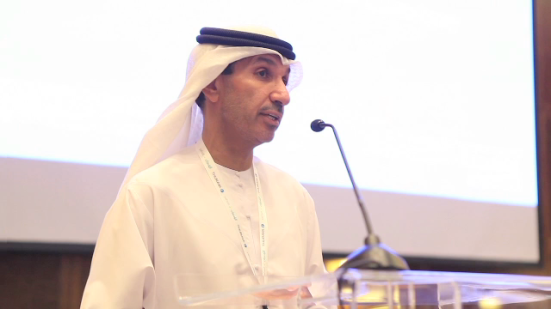 The United Nations considers information and connectivity as a basic need. Dr. Ahbabi explained how the UAE space sector provides connectivity to many of the world’s crisis-affected areas, plays a significant role in supporting aid organizations to plan and deliver the basic necessities of life, among which food, water, shelter and healthcare, and offers opportunities for collaboration and innovation.
The United Nations considers information and connectivity as a basic need. Dr. Ahbabi explained how the UAE space sector provides connectivity to many of the world’s crisis-affected areas, plays a significant role in supporting aid organizations to plan and deliver the basic necessities of life, among which food, water, shelter and healthcare, and offers opportunities for collaboration and innovation.
Dr. Mohammed Al Ahbabi, Director General, UAE Space Agency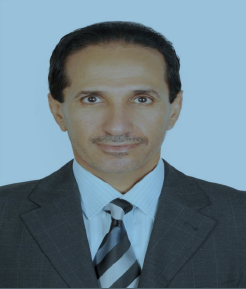
Dr. Mohamed Nasser Al Ahbabi is the Director General of the UAE Space Agency, which he designed and created, and leads a team of 50 who manage the UAE’s space sector. He is responsible for realizing the Agency’s goals of growing the sector and recommends the National Space Strategy, and related laws, policies, and regulations to the government.
Dr. Ahbabi has contributed and led numerous strategic projects in the ICT domain for UAE government as well as having led a UAE Armed Forces Think Tank Project within the Centre of Excellence, advising Military and Government at the strategic level on emerging concepts and technologies in the area of Smart Defense, Cyber Warfare and Space developments. He was the head of YAHSAT MilSatCom and other space projects. He has an active role in ITU-R, UN Space working groups and ICT professional associations. Dr. Ahbabi is also a key speaker in a number of international conferences in the area of smart defense, mil-Space, cybersecurity, and smart governments. He is a board member of YahSat Company and of the UAE ICT fund.
Dr. Ahbabi obtained his first degree in the USA, and his MSc and PhD in the United Kingdom in the Information and Communication Technologies domain, where he has published more than 20 scientific papers.
Link to related material:
3. Digital Aid: Game-Changing Humanitarian Transformation
Presenter: Ms. Gwi-Yeop Son, Director, Corporate Programmes Division, UN Office for the Coordination of Humanitarian Affairs (OCHA)
Wednesday, 29 April 2015, 09:20-09:40
The number of people in need of humanitarian assistance has almost doubled over the past ten years, and is expected to keep rising. The global humanitarian system is at a crossroads and only through partnership and innovation is it possible to meet these unprecedented humanitarian needs.
Providing information and two-way communication are now an integral part of humanitarian response. The network age is re-shaping humanitarian response and the communications revolution continues to have a profound impact on the way people survive and respond to emergencies.
UN OCHA works to ensure humanitarian response is as coordinated and effective as possible, to find a consensus on the problem, the priorities, and what needs to be done to ensure people who are affected receive the aid they need. Gwi called on WGET participants to work together to develop game-changing approaches to enable digital aid and harness technology to build resilience and to provide assistance more effectively.
Gwi could not attend the 36th WGET Forum owing to the response requirements of the earthquake that struck Nepal on 25 April. WGET Chair Patrick Gordon delivered her remarks.
Ms. Gwi-Yeop Son, Director, Corporate Programmes Division, UN Office for the Coordination of Humanitarian Affairs (OCHA)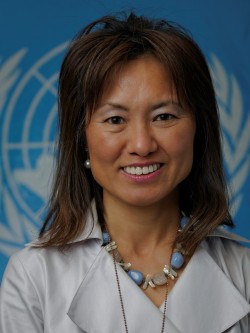
Ms. Gwi-Yeop Son began her career in Haiti, assisting HIV/AIDS patients with a non-governmental organisation called the Death and Dying Institute. She then worked with the Country Women’s Association of Nigeria, focusing on micro-finance schemes, before taking up a position as Assistant to the Managing Director of Lehman Brothers.
In 1994, Ms. Son joined UNDP and had a number of positions including in Somalia as a Programme Officer in 1994, Assistant Resident Representative of the Governance and Environmental Management Division in Lao PDR in 1996, Special Assistant to the Assistant Administrator with UNDP’s Bureau of Management in 1998, Deputy UNDP Representative in East Timor in 2000, Programme Advisor on Afghanistan in 2002, Country Director of UNDP Indonesia in 2003, and United Nations Resident Coordinator and UNDP Resident Representative in Thailand in 2007.
In May 2011, Ms. Son took up the post of Director of Corporate Programmes of the United Nations Office for the Coordination of Humanitarian Affairs (OCHA). In this role Ms. Son holds direct oversight over OCHA’s work on communication, information management and policy development, as well as the Central Emergency Response Fund (CERF) and the Country Based Pooled Funds including Emergency Response Fund (ERF) and Common Humanitarian Fund (CHF). Ms. Son also has ultimate responsibility for OCHA’s administrative functions and oversees the World Humanitarian Summit Secretariat which will help organize the first ever Humanitarian Summit in 2016.
Links to related material:
UN Office for the Coordination of Humanitarian Affairs
World Humanitarian Summit
4. ETC 2020: Today’s Partnerships for Tomorrow’s Live-Saving Digital Solutions
Presenter: Mr. Jakob Kern, CIO & Chair of the Emergency Telecommunications Cluster (ETC), UN World Food Programme (WFP)
Wednesday, 29 April 2015, 09:40-10:00
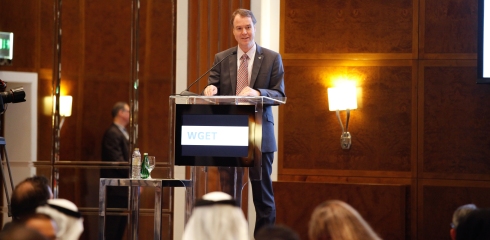 By 2020, the Emergency Telecommunications Cluster (ETC) network of aid, government and private sector organisations will create an emergency response environment that provides humanitarians, disaster-affected communities and governments with a seamless, resilient and principled communications experience.
By 2020, the Emergency Telecommunications Cluster (ETC) network of aid, government and private sector organisations will create an emergency response environment that provides humanitarians, disaster-affected communities and governments with a seamless, resilient and principled communications experience.
The ETC 2020 strategy is formed around 6 core themes: Continue to deliver on the existing mandate to provide common ICT services to the humanitarian community; Facilitation and/ or delivery of essential life-saving communications services to affected populations; Working with governments to build resilience enabling quicker restoration of essential communications channels after a disaster; Significantly improve energy provision and mainstream connectivity services to enhance connectivity and enable delivery of digital aid; Leveraging capacities and synergies available through the ETC network to ensure response readiness, enabling ETC responders to provide predictable and effective international and local response within 24 hours of a crisis; New models for partnerships that will enable the ETC network to effectively channel joint efforts, by providing scale, scope, and new efficiencies.
In order to achieve Vision 2020, the involvement of the WGET community will be crucial.
Mr. Jakob Kern, CIO & Chair of the Emergency Telecommunications Cluster (ETC), UN World Food Programme (WFP)
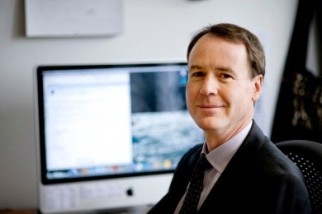 Jakob Kern is the Chief Information Officer and Director of Information Technologies at the United Nations World Food Programme. He is responsible for the overall IT strategy, operations, processes and more than 425 IT staff of the world’s largest humanitarian agency fighting hunger globally. He has further responsibility for supporting the organisation’s Change Process within the development of the strategic framework and priorities of the Division, and is advising the Executive Director on all IT related matters.
Jakob Kern is the Chief Information Officer and Director of Information Technologies at the United Nations World Food Programme. He is responsible for the overall IT strategy, operations, processes and more than 425 IT staff of the world’s largest humanitarian agency fighting hunger globally. He has further responsibility for supporting the organisation’s Change Process within the development of the strategic framework and priorities of the Division, and is advising the Executive Director on all IT related matters.
Jakob is currently the Chair of the Emergency Telecommunications Cluster of the United Nations (ETC) and the Management Committee of the United Nations International Computing Center (ICC), the common data centre of 30 UN Agencies based in Geneva.
Jakob joined WFP in 1998 in Monrovia, Liberia as Head of one of the largest Special Operation projects consisting of 200 km of emergency road repairs in a post war environment to facilitate food distribution to refugees. He then moved on as Emergency Coordinator and Programme Advisor in Asmara, Eritrea where he was responsible for two large-scale emergency operations. He was WFP Deputy Country Director in North Korea and prior to becoming CIO in February 2012, was the Deputy Chief Information Officer at WFP since 2006, where he managed all seven branches of the Division and provided leadership to the development of global IT innovative strategies and programmes to enhance efficiency through IT applications.
Before joining the World Food Programme, Jakob worked as a consultant and project manager for several companies, where he was responsible for global engineering projects throughout Africa and Asia.
Jakob received a Masters in Civil Engineering from ETH Zurich, Switzerland. He is married and has two young boys.
Links to related material:
Emergency Telecommunications Cluster (ETC)
ETC 2020
About ETC 2020
5. Satellite and the Transformation of the Humanitarian System
Presenter: Mr. Samer Halawi, CEO, Thuraya
Wednesday, 29 April 2015, 10:00-10:10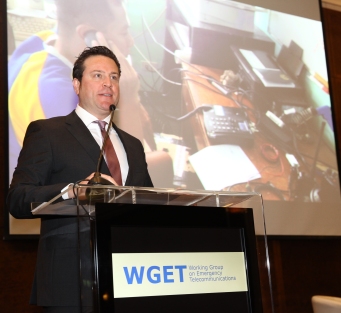
In this keynote, the CEO of Thuraya looked at how the satellite industry will help transform the humanitarian system within the digital economy and how Thuraya envisions the future technological landscape for communications.
The digital transformation in relief work is dependent on safe, secure and reliable connectivity in order for relief workers to conduct their critical transactional activities and to save lives. Communities and citizens affected by crisis have a need to communicate externally with their families, their governments and the global community that is supporting them. To relief workers, establishing communication links is essential for first responders to assess the scale of the disaster or organize an evacuation, as well as for ongoing coordination and the set-up of relief operations such as hospitals or vaccination clinics.
Satellite technology remains an integral part of the Information and Communication Technology (ICT) infrastructure, enabling first responders and relief workers to establish vital communication links when it matters most.
Mr. Samer Halawi, CEO, Thuraya
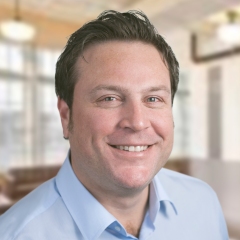 Samer Halawi has served as Thuraya’s Chief Executive Officer since January 2011. Drawing upon his extensive experience in ICT and the global satellite communications industry, Samer is responsible for leading Thuraya’s strategic positioning and driving its growth as a prominent global Mobile Satellite Services operator.
Samer Halawi has served as Thuraya’s Chief Executive Officer since January 2011. Drawing upon his extensive experience in ICT and the global satellite communications industry, Samer is responsible for leading Thuraya’s strategic positioning and driving its growth as a prominent global Mobile Satellite Services operator.
Throughout his career, Samer has demonstrated an unwavering commitment to connecting the disconnected via satellite. He has supported a number of non-profit organizations including the ITU, SOS Children’s Villages, NetHope, the Rory Peck Trust and the International News Safety Institute with free airtime and satellite equipment enabling rural and remote communications. Samer has been responsible for leading the close collaboration between the Company’s Service Partners, NGOs and government organizations to provide satellite communications during times of emergencies in China, Japan, the Philippines and Sierra Leone. Thuraya’s services have resulted in countless lives being saved when terrestrial networks were damaged or destroyed.
Before joining Thuraya, Samer played a leading role in starting-up and growing a new venture involved in the digital space that focused on mobile content, IPTV, mobile advertising and web management. Prior to that, Samer was part of Inmarsat’s global strategy team where he was responsible for running operations for the Middle East, Africa, and Asia Pacific. Samer’s other telecommunications experience relates to his roles at Flag Telecom and ICO Global Communications. His role at ICO followed a private placement for the shares of the company that he led during a three-year period he spent in investment banking in the Middle East.
Samer started his career in the automotive industry where he was part of the Chrysler Corporation and Ford Motor Company. He holds a Bachelor of Science degree in Electrical Engineering from Lawrence Technological University and an MBA with a concentration in Finance from the University of Michigan at Ann Arbor in the U.S.
Link to related material:
6. Satellite, Critical Infrastructure for First Response
Presenter: Mr. Masood M. Sharif Mahmood, CEO, Yahsat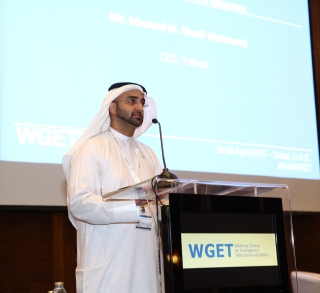
Wednesday, 29 April 2015, 10:10-10:20
Satellite is impacting people’s lives around the world, providing connectivity that helps promote social well-being.
The CEO of Yahsat spoke about the critical role that satellite plays in emergency response, in particular highlighting three trends that promise to drastically change the way the humanitarian community connects in the field: improvements in the ability to deploy satellite connectivity equipment; the broadening areas satellites cover; and the increasing bandwidth readily available through satellite connections.
Mr. Masood M. Sharif Mahmood, CEO, Yahsat
05_Satellite Critical Infrastructure for First Response_presentation 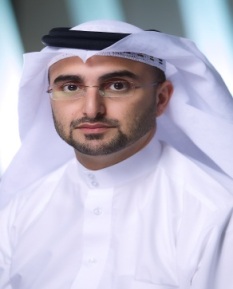 Masood Mahmood is the Chief Executive Officer (CEO) of Al Yah Satellite Communications Company, Yahsat, the UAE based satellite communications company. He is also a Board Member of DU Telecommunications company and a member of both DU’s Investment and Nomination & Remuneration committees.
Masood Mahmood is the Chief Executive Officer (CEO) of Al Yah Satellite Communications Company, Yahsat, the UAE based satellite communications company. He is also a Board Member of DU Telecommunications company and a member of both DU’s Investment and Nomination & Remuneration committees.
As CEO, Masood is responsible for the overall management and full deployment of Yashat’s operational capabilities, on both government and commercial fronts, expanding the business’s global footprint to provide first-class satellite communication solutions. Since joining, Masood has carried on the business’s trajectory extending the growth of the company into new markets, which will include Latin America in 2016, as well as leading its aspirations on being the region’s best-in-class multipurpose satellite operator. The company continues its key role to support the UAE Government, as well as furthering its commercial reach with its various services from YahClick satellite broadband, YahLink IP Trunking & backhaul, as well as Yahlive TV broadcasting (Yahlive is a joint venture with SES).
Appointed as CEO in June 2013, Masood brings with him a wealth of experience, having served on the board of several other companies from financial, industrial and manufacturing industries as well as real-estate. This in addition to having served as Deputy CEO at Yahsat prior to being appointed as CEO, as well as having worked with Mubadala, as Vice President of their Information and Communications Technology (ICT) unit, where he was in charge of corporate strategy and asset management of the ICT unit’s portfolio. This included companies such as DU, EMTS, Injazat, as well as Yahsat.
Masood also has significant experience in investment management and business development, having served for more than a decade at a number of high profile government and semi-government entities in the UAE, such as Dubai Holding and the Executive Office of HH Sheikh Mohamad bin Rashid Al Maktoum.
Masood holds a Bachelor of Science degree in Computer Systems Engineering from Boston University, Massachusetts and holds an MBA in Finance from McGill University, Montreal, Canada.
Link to related material:
7. Connected Societies and the Digital Transformation: The Impact on Humanitarian Response
Presenter: Mr. Rutger Reman, President and Head of Customer Unit Industry and Society, Middle East and Africa Region, Ericsson
Wednesday, 29 April 2015, 11:00-11:40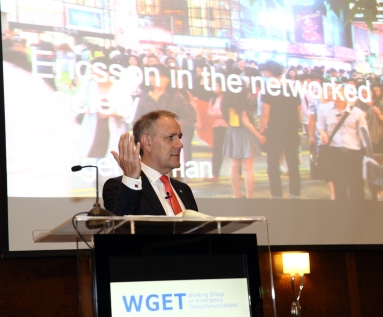
This session examined how ICT can enable societies and better serve people, from both a social and humanitarian perspective, taking into account such trends as migration from rural to urban areas and the growth of megacities.
There is general recognition that technology can do so much to further progress across all levels of society, and growing acceptance that connectivity has become a basic need. “Technology for good” comprises a range of initiatives, from broadening access to learning, healthcare and banking to helping to achieve efficiencies and resilience in the energy, water and transport sectors, to assisting families in crisis situations reunite. We are just beginning to tap the potential of connected societies, and the predictive function of the resulting data can help us to work more effectively.
Mr. Rutger Reman, President and Head of Customer Unit Industry and Society, Middle East and Africa Region, Ericsson
 Rutger Reman started his active career life after university at the Swedish operator Telia where he worked several years and held different local and international roles.
Rutger Reman started his active career life after university at the Swedish operator Telia where he worked several years and held different local and international roles.
In 1995, Rutger joined Ericsson in Sweden, and has been working in Ericsson since then. He has held different positions in Project Management, Product Management, Operations, Marketing and Sales. Since 2004, Rutger has been relocated outside of Sweden where he has worked in various roles and projects with a large number of customers in Europe, Middle East, Africa and Asia. Recently Rutger has been Executive Vice President and Head of Global Customer Unit OOREDOO based in Qatar.
As of January 2015, Rutger was appointed President and Head of Customer Unit Industry & Society, which is a newly established business line within Region Middle East, in order to drive business growth and capture market opportunities in new business areas with a special focus on Energy & Utilities, Public Safety & Security, Intelligent Transport Systems and Smart Cities.
Rutger was born in 1963 in Goteborg, Sweden, where he was brought up and educated.
Links to related material:
8. Prepositioning Relationships and Technology to Better Communicate with Communities in Disaster Response
Panelists: Ms. Angela Rouse, Senior Programme Manager, CDAC Network Secretariat; Mr. Mike Adams, International Coordinator, First Response Radio; Mr. Gil Arevalo, Communications with Communities Coordinator, UN Office for the Coordination of Humanitarian Affairs (OCHA)
Wednesday, 29 April 2015, 11:40-12:20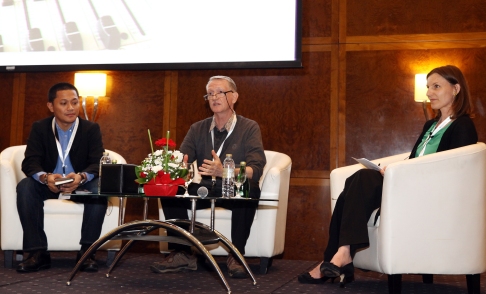
In the days and weeks following a disaster, information and the means to communicate – both with each other and with responders – are crucial for the survival and well-being of communities. They also play a key role in early warning. The humanitarian response system has the know-how and technology to enable this to happen as a matter of course, and yet it persists as a major challenge.
Gil, Mike and Angela discuss the communication needs of communities and what it means for the humanitarian system: looking at how we can address this systemic challenge early and collectively, through partnership across traditional boundaries and with genuine commitment to put people first.
Ms. Angela Rouse, Senior Programme Manager, CDAC Network Secretariat
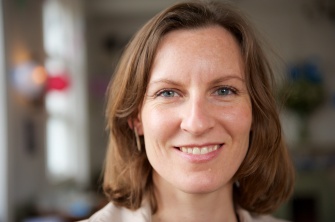 Angela is currently Senior Programme Manager for the Secretariat of the Communicating with Disaster Affected Communities (CDAC) Network. The Network is a unique collaboration between NGOs, UN agencies, media development
Angela is currently Senior Programme Manager for the Secretariat of the Communicating with Disaster Affected Communities (CDAC) Network. The Network is a unique collaboration between NGOs, UN agencies, media development
agencies, technology providers and others that crosses traditional boundaries to leverage improvements both in information sharing for communities, and two-way communication between humanitarian responders and disaster-affected people, as well as between disaster affected people themselves. Angela leads the implementation of the Network’s capacity strengthening work and manages the programme team. “Ultimately I want to see humanitarian responses where community voices truly shape programmes and decisions, and where communities, duty bearers and responders work together to implement the responses.”
Prior to joining the CDAC Network in November 2013, Angela was the Emergency Capacity Building Manager for CARE International and brings rich experience of interagency collaboration across various initiatives, accountability in practice, training design and delivery, and evaluative work. Angela has a strong programmatic background, having spent many years working in the Democratic Republic of Congo, Uganda and Kenya across various sectors, including primary health care, gender-based violence, and water, sanitation and hygiene. She has worked in the humanitarian sector for over ten years, prior to which she worked in scientific research following an education in biology and public health.
Mr. Mike Adams, International Coordinator, First Response Radio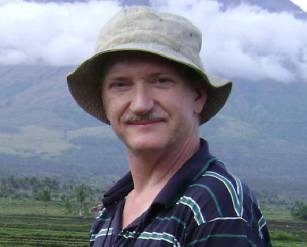
Originally from Seattle, Washington, Mike started his career as an aircraft radio technician. He has worked as a broadcast engineer since 1987 with experience in SW transmitters, antennas, studios and Mike’s favorite – AM radio remote broadcasts. In 2003 he received Society of Broadcast Engineers (SBE) certification as a Professional Broadcast Engineer for 20 years experience in radio.
Mike began working as a consultant with Health Communications Resources (HCR) after the 2004 Asian tsunami where they worked together with a local partner to put an Emergency FM radio station on the air in Indonesia. After seeing the value of radio after a disaster, he has worked to develop the Rapid Response Radio Unit (RRRU) that can be deployed anywhere in the world within 72 hours of a disaster.
The network of participating stations is called FIRST Response Radio and Mike has been serving as the international coordinator since the start. Since 2007, Mike has led Rapid Response Radio Workshops and field trials in the Philippines, India and Indonesia teaching teams to use radio in humanitarian relief for the affected communities following disasters.
A RRRU team was led by Mike into the flooded Kosi river region of Bihar, India in 2008 to establish radio broadcasts to assist the 3 Million people affected by the flood. He also led a team into Sumatra Indonesia following the Sept 2009 Earthquake, establishing an FM station within 5 days of the disaster. Mike most recently took a team into the most affected community in Tacloban, Philippines following typhoon Haiyan/Yolanda where all radio and TV stations were off the air. The team arrived on the 5th day and were broadcasting on the 6th day after the powerful typhoon.
Mike received a Bachelor of Science in Electrical Engineering (BSEE) from Washington State University in 1984. Mike is married, has two daughters and currently lives in Cambodia.
Mr. Gil Arevalo, Communications with Communities Coordinator, UN OCHA
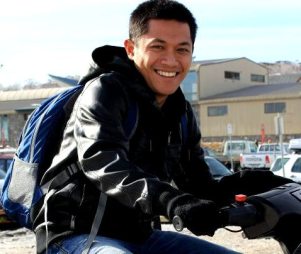 Gil Francis Arevalo has twelve years of experience in the field of media, communication, humanitarian and emergency response, community engagement, youth development, disaster risk reduction and management and climate change adaptation. Since 2003, he has worked in different capacities with various organizations like the Philippine Daily Inquirer, Save the Children-US, YMCA-Japan, Oxfam-GB, UNFPA and UNDP.
Gil Francis Arevalo has twelve years of experience in the field of media, communication, humanitarian and emergency response, community engagement, youth development, disaster risk reduction and management and climate change adaptation. Since 2003, he has worked in different capacities with various organizations like the Philippine Daily Inquirer, Save the Children-US, YMCA-Japan, Oxfam-GB, UNFPA and UNDP.
Currently, he is with the United Nations Office for the Coordination of Humanitarian Affairs (OCHA) – Philippines as Communications with Communities (CwC)/Accountability to Affected Populations (AAP) Coordinator, establishing and leading a CwC/AAP preparedness working group at the national level, which is designated to facilitate coordination for communications with disaster-affected communities practitioners in partnership with the Government of the Philippines, CSOs, INGOs, media, private sectors, telecommunication companies, and faith-based groups.
He provided proper coordination through the Community of Practice of CwC/AAP and technical support during successive emergencies and disasters in 2013: Zamboanga armed conflict, Bohol earthquake, and typhoon Haiyan; and also as part of preparedness initiative during typhoon Hagupit in 2014 and typhoon Maysak in 2015.
Links to related material:
The CDAC Network
First Response Radio
First Response Radio Tacloban Deployment
UN Office for the Coordination of Humanitarian Affairs – Philippines
9. Multi-Channel Mobile Crisis Response Platforms: Lessons Learned in the Middle East
Presenter: Mr. Yazeed Sheqem, Director of Business Development, MENA & Africa, Souktel Inc.
Wednesday, 29 April 2015, 13:50-14:20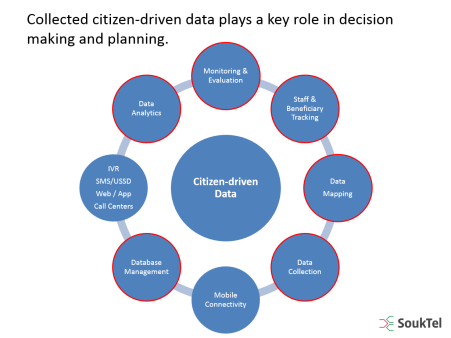
When humanitarian disaster strikes, rapid response–at scale—is crucial to saving lives and minimizing damage. But in many crisis zones, a shortage of ex-ante population data means that aid providers often lack a clear understanding of local demographics. As a result, NGOs and aid agencies fail to develop effective communication and outreach strategies, and communities fail to receive critical life-saving information.
Multi-channel mobile platforms help address this challenge—by providing a range of simultaneous options for transmitting information to and from disaster-affected populations. Yazeed Sheqem spoke about lessons that Souktel, based in Ramallah, Palestine, has learned in the Middle East.
Mr. Yazeed Sheqem, Director of Business Development, MENA & Africa, Souktel Inc.
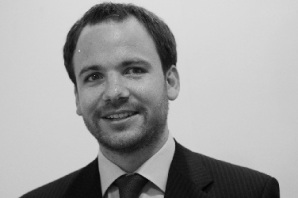 Yazeed Sheqem leads Souktel’s strategic outreach to clients and partners in the Levant, Gulf, North Africa and Sub-Saharan African regions. He also drives Souktel’s consulting practice which advises clients in the fields of ICT4D and M4D. Yazeed has extensive experience in the area of technology utilization for disaster and emergency response as well as economic growth and employment.
Yazeed Sheqem leads Souktel’s strategic outreach to clients and partners in the Levant, Gulf, North Africa and Sub-Saharan African regions. He also drives Souktel’s consulting practice which advises clients in the fields of ICT4D and M4D. Yazeed has extensive experience in the area of technology utilization for disaster and emergency response as well as economic growth and employment.
Yazeed holds a Master’s degree in economics from the Goethe University in Frankfurt-Germany as well as a higher degree in urban planning from New York University. He is based in Amman-Jordan and is fluent in Arabic, English, and German.
Founded in 2006, Souktel is a provider of end-to-end technology solutions that support the projects of 30+ development funders and implementers across the globe. Additionally, Souktel delivers strategic consulting services in the fields of ICT4D and M4D. Souktel is mainly engaged in the areas of disaster and emergency response, economic growth and employment, education and youth, as well as democracy and governance. Based in Ramallah-Palestine, Souktel helps change lives in more than 20 emerging markets in Africa, Asia, and the Americas.
Link to related material:
